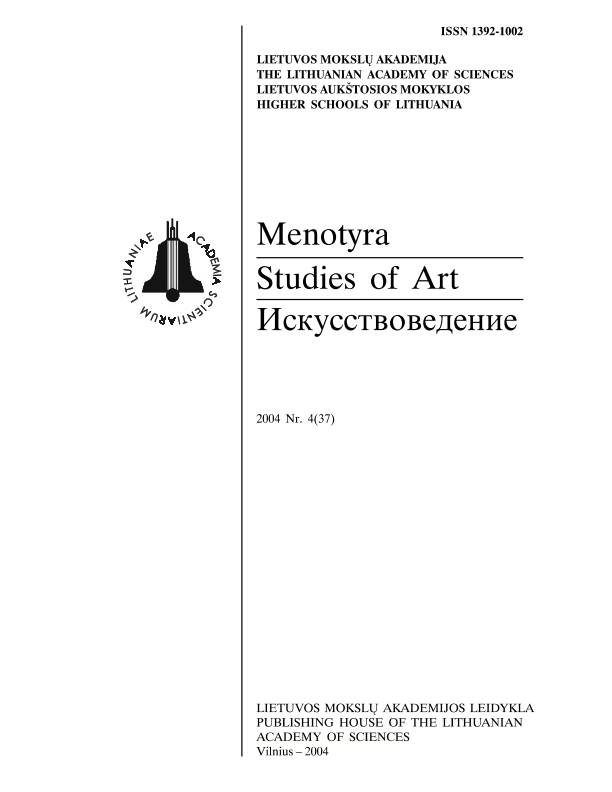Juozas Glinskis ir modernioji drama
Challenges to the theatre posed by the plays of Juozas Glinskis
Author(s): Gražina MareckaitėSubject(s): Theatre, Dance, Performing Arts, Cultural history, Recent History (1900 till today), Sociology of Art
Published by: Lietuvos mokslų akademijos leidykla
Summary/Abstract: The modern epoch, modernity, modernism - these concepts have been coming up in discussions on history, literature, philosophy, and the arts for several decades, and there is no end in sight.Viewing the problem not in its global context, but rather narrowing the issue to theatre (more specifically, Lithuanian theatre), it is worthwhile to look at plays of Juozas Glinskis, which mark a new stage in the development of Lithuanian theatre in the second half of the 20th century. The production of "Grasos namai", a play written by the back then still unknown Juozas Glinskis, in1970 in the Kaunas drama theatre (directed by Jonas Jurašas) apparently echoes the poet's Ezra Pound's saying "Make it new!"J. Glinskis broke the traditional Lithuanian (usually a poetic drama) model, and is known as the pioneer of Lithuanian "theater of cruelty". The playwright himself, however, calls his works "cognitive dramas". They cross the protective boundaries of "common sense"; the play's dramaturgic dynamics are based on shadings and manifestations of evil. In terms of style, that is a sarcastic grotesque, an anti-psychological caricature, a subconscious hysteria, and a combination of folkloric "earthly" motifs and sallies of lyricism and romantic emotion."Grasos namai" and "Kingas" (directed by Jonas Vaitkus in 1980) are plays marking a turning point in the hierarchy of aesthetic values in Lithuanian theatre. These and other J. Glinskis' plays (some of which were never put on stage) demanded new means of expression from the Lithuanian theatre: naked passions, harsh validation of matter, superiority of metaphors, and avant-garde challenges.
Journal: Menotyra
- Issue Year: 2004
- Issue No: 4(37)
- Page Range: 39-41
- Page Count: 3
- Language: Lithuanian

